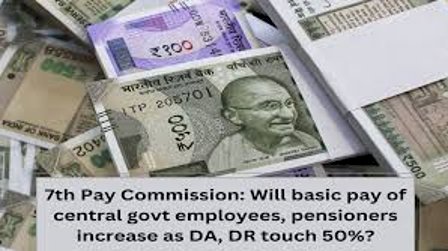DA Hike: Will Basic Pay of Central Govt Employees and Pensioners Increase?
The recent increase in Dearness Allowance (DA) and Dearness Relief (DR) to 50% as per the 7th Pay Commission raises questions about its impact on the basic pay of central government employees and pensioners. This adjustment addresses inflation and aims to improve financial well-being, but its direct effect on basic pay needs clarification

Understanding DA and DR Increases:
- The Dearness Allowance and Dearness Relief for central government employees and pensioners have been hiked to 50% to counteract inflation and rising living costs.
2. Impact on Basic Pay:
- Despite the increase in DA and DR, there is no direct increase in the basic pay. The DA increment is a separate component calculated on the basic pay to help mitigate inflation effects.
3. Calculation of Benefits:
- Employees' overall salary will increase due to the higher DA, but the basic pay remains unchanged. For instance, an employee with a basic pay of ₹50,000 receiving 50% DA will get ₹25,000 as DA, up from ₹23,000 at 46%.
4. Broader Implications:
- The DA hike ensures employees and pensioners maintain their purchasing power in the face of inflation. This adjustment is crucial for financial planning and stability.
Conclusion: The increase in DA and DR to 50% provides significant financial relief to central government employees and pensioners, though it does not alter the basic pay. This hike is essential for maintaining the real value of earnings against inflation, ensuring better financial security for those in public service.

 Admin
Admin 


































Comments (0)